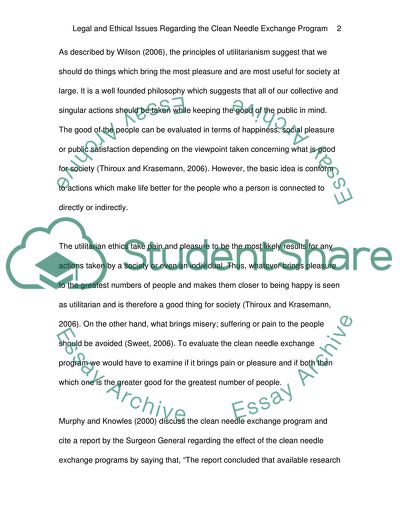Cite this document
(Legal and Ethical Issues Regarding the Clean Needle Exchange Program Coursework, n.d.)
Legal and Ethical Issues Regarding the Clean Needle Exchange Program Coursework. Retrieved from https://studentshare.org/health-sciences-medicine/1715941-legal-and-ethical-issues-regarding-the-clean-needle-exchange-program
Legal and Ethical Issues Regarding the Clean Needle Exchange Program Coursework. Retrieved from https://studentshare.org/health-sciences-medicine/1715941-legal-and-ethical-issues-regarding-the-clean-needle-exchange-program
(Legal and Ethical Issues Regarding the Clean Needle Exchange Program Coursework)
Legal and Ethical Issues Regarding the Clean Needle Exchange Program Coursework. https://studentshare.org/health-sciences-medicine/1715941-legal-and-ethical-issues-regarding-the-clean-needle-exchange-program.
Legal and Ethical Issues Regarding the Clean Needle Exchange Program Coursework. https://studentshare.org/health-sciences-medicine/1715941-legal-and-ethical-issues-regarding-the-clean-needle-exchange-program.
“Legal and Ethical Issues Regarding the Clean Needle Exchange Program Coursework”. https://studentshare.org/health-sciences-medicine/1715941-legal-and-ethical-issues-regarding-the-clean-needle-exchange-program.


